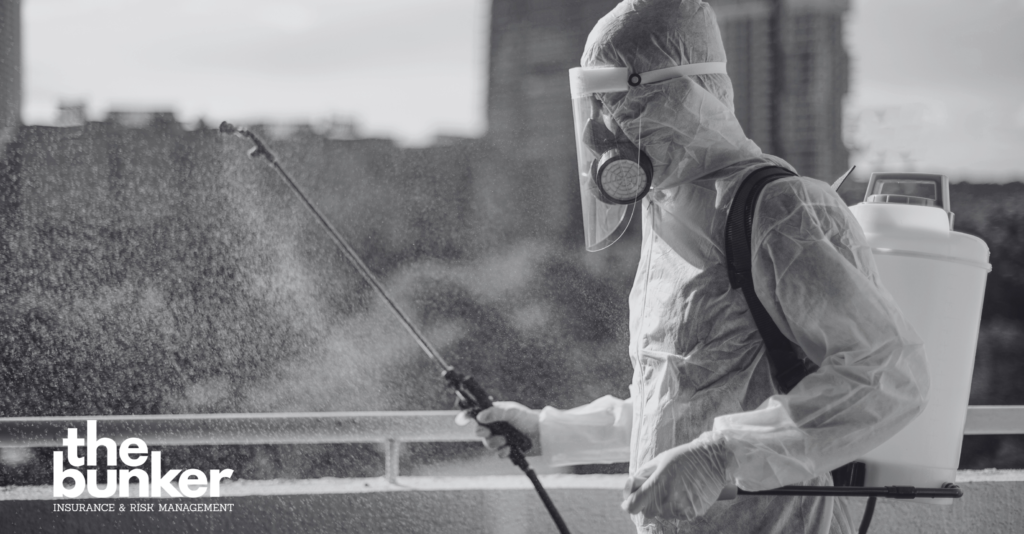Pest control businesses are not immune to workplace accidents and injuries. Whether it’s a technician getting bitten by a pest, slipping and falling while on a client’s property, or suffering repetitive strain injuries from repetitive tasks, the risks are real. That’s where workers’ compensation insurance steps in, providing vital protection for both employees and employers. In this article, we’ll delve into the essentials of workers’ compensation insurance for pest control businesses and why it’s a crucial investment in safeguarding your company’s future.
Understanding Workers’ Compensation Insurance
Workers’ compensation insurance is a type of coverage that provides benefits to employees who suffer work-related injuries or illnesses. These benefits typically include:
1. Medical Expenses: Workers’ comp insurance covers the costs of medical treatment, including doctor’s visits, hospitalization, surgery, medication, and rehabilitation services necessary for an employee’s recovery.
2. Lost Wages: If an employee is unable to work due to a work-related injury or illness, workers’ comp insurance provides partial replacement of lost wages to help them cover their living expenses during their recovery period.
3. Disability Benefits: In cases where an employee suffers a permanent disability or impairment as a result of a work-related injury, workers’ comp insurance may provide disability benefits to compensate for the loss of earning capacity.
4. Death Benefits: If a work-related injury or illness results in the death of an employee, workers’ compensation insurance provides death benefits to the employee’s dependents, including funeral expenses and ongoing financial support.
The Importance of Workers’ Compensation for Pest Control Businesses
Workers’ compensation insurance is particularly crucial for pest control businesses due to the nature of the industry and the inherent risks involved in pest control operations. Here’s why workers’ comp is essential for protecting your business:

1. Protecting Employees: Pest control technicians face various hazards in the course of their work, including exposure to hazardous chemicals, bites and stings from pests, and the risk of slips, trips, and falls. Workers’ comp insurance ensures that employees receive prompt medical treatment and financial support in the event of a work-related injury or illness, promoting their well-being and recovery.
2. Legal Compliance: In most states, workers’ compensation insurance is a legal requirement for businesses with employees. Failure to carry workers’ comp coverage can result in significant penalties, fines, and legal liabilities for non-compliance. By maintaining workers’ comp insurance, pest control businesses can ensure compliance with state regulations and avoid costly legal consequences.
3. Financial Protection for Employers: Workers’ compensation insurance provides financial protection for employers by covering the costs of workplace injuries and illnesses. Without workers’ comp coverage, businesses may be held financially responsible for medical expenses, lost wages, disability benefits, and legal fees associated with workplace accidents or injuries, potentially leading to financial hardship or bankruptcy.
Tailoring Workers’ Compensation Coverage for Your Pest Control Business
When purchasing workers’ compensation insurance for your pest control business, it’s essential to tailor coverage to address the specific risks and needs of your operations. Consider the following factors:
1. Industry-specific Risks: Pest control businesses face unique risks that may not be adequately covered by standard workers’ comp policies. Work with an experienced insurance agent who understands the pest control industry and can customize coverage to address your specific risks, such as exposure to pesticides, bites and stings from pests, and ergonomic hazards.
2. Employee Training and Safety Programs: Implementing comprehensive employee training and safety programs can help reduce the risk of workplace injuries and mitigate workers’ comp claims. Many insurance providers offer risk management resources and incentives for businesses that prioritize workplace safety and accident prevention.
Call to Action: Schedule a Consultation
Is your pest control business adequately protected with workers’ compensation insurance coverage? Schedule a consultation with our experienced insurance agent, Ciara Gravier, to discuss your insurance needs and explore tailored workers’ comp options that provide comprehensive protection for your employees and your business.
In conclusion, workers’ compensation insurance is a vital component of risk management for pest control businesses, providing essential protection for employees and employers alike. By investing in workers’ comp coverage and partnering with a knowledgeable insurance agent, pest control operators can safeguard their employees’ well-being, ensure legal compliance, and protect their business’s financial future.
